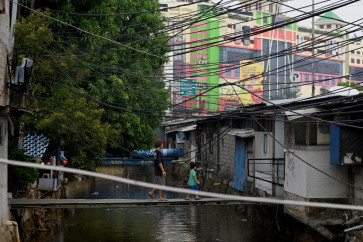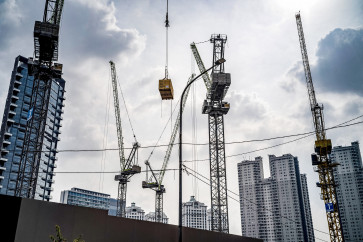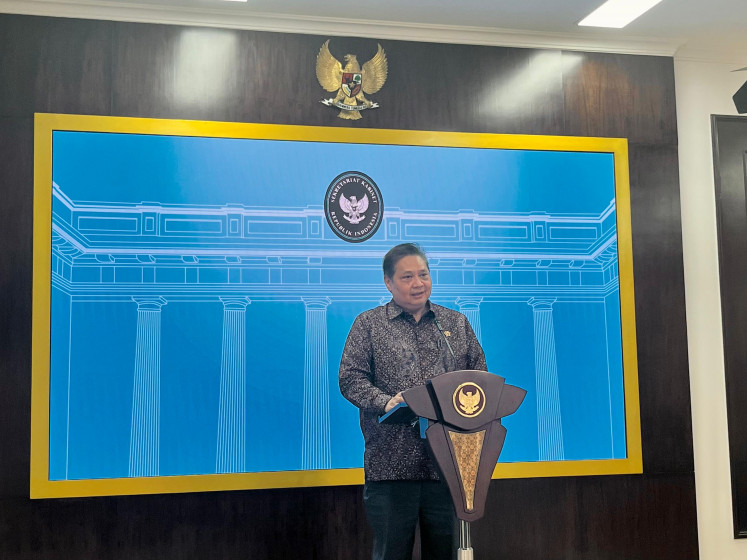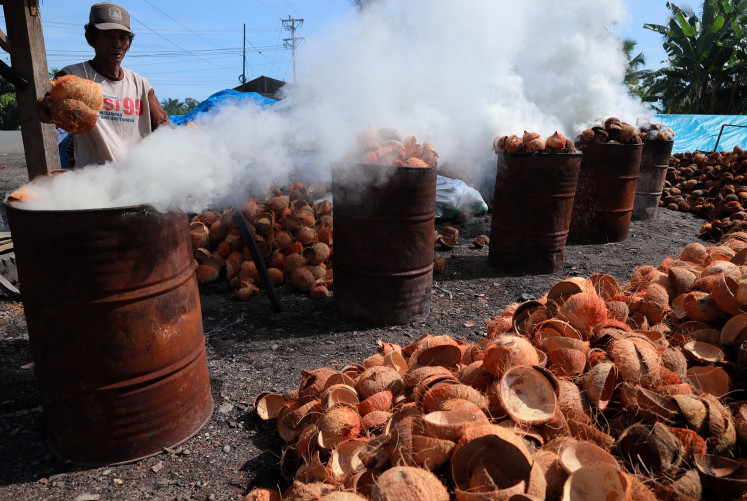BPMigas dissolution creates opportunity for Indonesian human resources
The recent dissolution of the upstream oil and gas regulatory body, BPMigas, is good news
Change text size
Gift Premium Articles
to Anyone

T
he recent dissolution of the upstream oil and gas regulatory body, BPMigas, is good news. It presents an opportunity to create real organizational change in regards to developing human resources to higher standards for the Indonesian oil and gas industry.
Change is hard. But without this change, the upstream oil industry is becoming more beholden to foreign investors, and there is little endogenous (local bootstrap pulling up) activity for the industry to change on its own.
Change is critical as we live in an information economy. Current production sharing contracts (PSCs) do not really reflect this for locals. The PSCs are an old way of doing things. There was a time for them, but their time has passed. They do not promote today’s information intensive society.
This is important as if left unchanged they will continue to hinder development initiatives. Simply, oil companies on their own are not the best to manage corporate social responsibility (CSR) and development initiatives.
Yet, oil and gas are strategic reserves for Indonesia, and for its future generations. They need to be developed. This is going to require new initiatives on both sides.
Article 33(3) of the Constitution, which states that “the land, the waters and the natural resources within shall be under the powers of the State and shall be used to the greatest benefit of the people,” is ambiguous by nature.
Meaning a viewpoint could be interpreted many different ways and will continue to be so unless we consider the Explanatory Memorandum in relation to Article 33, wherein “the natural resources therein [Indonesia] are the resources of the welfare of the people”.
Any new bills in regards to Article 33 need to reflect that times have indeed changed. Education and development are the key to any nations success in the 21st century.
As far-fetched as it may seem to some, to be truly in line with Article 33 in today’s world (not the world of Indonesia in 1945) the Education and Culture Ministry must sit at the table as equals with the oil investors, tax officials and accountants (in short, Pertamina, if that is who the successor to BPMigas will eventually be, possibly by historical default) to begin to agree to supervise a timeline for skills transfer and local content development between them and the International Oil Companies (IOCs).
IOCs today have significant upstream methods for all types of things. Statistical methods to improve strikes and limit “dry-holes”; 3D seismic techniques to determine if oil is present in commercial quantities; drilling methods that can reach 90 degree horizontal and extend several kilometers out; all types of computerized processes and IT for support and operations; best practice methods for deepwater, shallow water and onshore drilling; content procurement processes that data mine for best world prices, scheduling, and availability; injection methods that can extend reservoir life, etc.
“Petroskills” is a service the IOCs use for oil education worldwide, and delivers education for oil workers in Indonesia. Yet, beyond premier schools, such as the Bandung Institute of Technology, there are no formal educational activities for upstream oil operations or maintenance in Indonesia.
To get the information disseminated more quickly, spatial sectoring is needed: This means developing poly-technical and engineering schools outside Jakarta and Bandung that will develop and create a future pool of workers for this vast industry.
If this initiative can be started, then Article 33, based on today’s reality of skills development that is aligned with the economic realities of a country, will be met in both letter and substance.
Indonesia’s foreign investment is still largely about oil, gas and mining. Its educational system needs to reflect it.
The oil business is conservative by nature. “Renegotiation” is a word the IOCs do not want to hear. It is understood that the IOCs and their contractors seek certainty in regards to their investments, and getting them to look down the road to new and changing paradigms will not be easy.
It is agreed in principle then that current contracts should be honored, to alleviate their concerns and not to jeopardize investment in Indonesia, but issues in regards to add-ons (expansions) of current PSCs that may not be readily apparent are of some concern.
Expansions should be considered as new projects, not under current PSCs regimes, but defining boundaries as to what constitutes an existing project and what is an expansion can also be debated forever.
Clear criteria needs to be set. Of course, demonstrating timelines with skills transfer, gain-sharing, and empowered employment (that is seconding and hiring locals for managerial decision making roles for Indonesia in Houston, London and Paris) would be a good-faith start.
If these things are being demonstrated, then why not extend the PSCs? It would produce theoretically a win/win/win: People/Companies/State.
Note that under this situation people are not assumed to be the state. They are a distinct, and equal in rank to the state, according to Article 33, in the Explanatory Memorandum. This issue is central to the legal case against BPMigas: That the state was not working for the people’s “maximum welfare”, but rather for investors.
To this end, real long-term benefit to the people is in the investment of developing a world standard oil and gas workforce. That will be a big enough payoff to investing entities. One only needs to consider Alaska with Prudhoe Bay or the UK and Norway with the North Sea. Both places over time developed world class operations and the workers to fill those jobs.
Foundational skills learned in these places are gladly accepted all over the world, from Angola to Libya to Malaysia to Canada. The point being, the resources in situ (in the location) were used to develop workforce and content. Over time the workers and content became renowned, and it is now used in other IOC operations around the globe.
Let’s put it another way: An oil worker from Norway or the UK is gladly welcomed to an offshore oil project in Angola not because of the color of their passport, but because the educational system and training in those places provided them the skills to do the job. Indonesia can do the same.
Perhaps much better, as countries that have a history of oil and gas development, have had an easier time to make the transition to a skills based economy not staying a crude oil export one.
Malaysia has already started to do this and China is now partnering with IOCs in third countries, such as Canada.
The bottom line is that if we can get past the short term thinking of financial returns for investments, and look to the longer horizon of people investments, Indonesia can benefit not only investors but also master its own skill and value added base for its fossil fuel industry. This will be sorely needed in a world of depleting resources and climate change threats.
The information and knowledge age needs to be clearly reflected and mandated in any new state organization that controls these resources for the people.
The writer, two-time Fulbright professor of energy and human resources, is chair of global management at Solbridge Int. School of Business in Daejon, South Korea.









